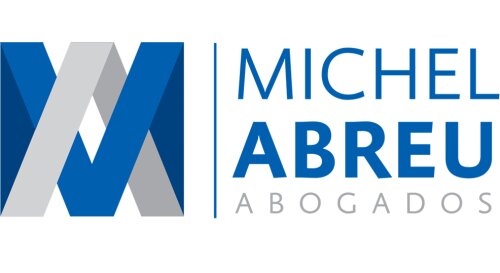Best Renewable & Alternative Energy Lawyers in Punta Cana
Share your needs with us, get contacted by law firms.
Free. Takes 2 min.
List of the best lawyers in Punta Cana, Dominican Republic
About Renewable & Alternative Energy Law in Punta Cana, Dominican Republic
The demand for renewable and alternative energy solutions is rapidly increasing in Punta Cana, Dominican Republic. This region, known for its thriving tourism sector and ongoing development, has recognized the importance of transitioning to sustainable energy sources. Renewable energy law in Punta Cana refers to the set of regulations, policies, and incentives established to govern the production, distribution, usage, and investment in energy sources such as solar, wind, hydro, and bioenergy. The Dominican government has instituted a legal framework to promote investment in renewable projects, support sustainability goals, and ensure compliance with both national and international energy standards.
Why You May Need a Lawyer
Navigating renewable and alternative energy laws in Punta Cana can be complex. There are several scenarios where it is beneficial or necessary to engage a lawyer:
- If you are an investor looking to develop a renewable energy project and require assistance in obtaining permits and authorizations.
- If you need guidance through contract negotiations or project financing related to energy infrastructure.
- If you are a property owner interested in installing solar, wind, or another alternative energy system on your property and want to understand your rights and obligations.
- If you encounter legal disputes involving energy suppliers, utility companies, or construction contractors.
- If you seek advice on regulatory compliance or tax incentive eligibility.
- If you are unsure about the environmental impact assessments and reporting requirements for your project.
Local Laws Overview
The Dominican Republic has implemented specific laws and policies to encourage the use of renewable energy. The cornerstone is Law 57-07, which provides fiscal and tax incentives for renewable energy investments. This legislation outlines the requirements for licenses, authorizations, and the integration of renewable energy into the national grid. Key aspects of local law relevant to Punta Cana include:
- Tax exemptions and credits for businesses and individuals investing in renewable energy.
- Permitting processes for the construction and operation of renewable energy projects.
- Mandatory compliance with environmental impact assessments according to national environmental regulations.
- Legal procedures to connect renewable sources to the public electricity grid.
- Incentives for self-generation of energy, such as net metering for solar projects.
- Special considerations for foreign investors, including project registration and repatriation of profits.
Frequently Asked Questions
What renewable energy sources are most popular in Punta Cana?
Solar and wind energy are the most widely adopted sources due to the region’s climatic advantages and available space. Some projects also utilize biomass.
Do I need a government permit to install solar panels on my property?
Yes, depending on the scale, you may need local government approval and must comply with safety and technical standards. Consultation with a lawyer can clarify your situation.
What incentives or benefits does the Dominican government offer to renewable energy investors?
The Law 57-07 grants several incentives, including value-added tax exemptions, import tax reductions, and fiscal credits for both commercial and residential projects.
Can residents sell excess power back to the electrical grid?
Yes, net metering regulations allow certain qualifying systems to feed surplus electricity into the grid for credit or payment, subject to contractual agreements with utility companies.
What environmental assessments are required for energy projects?
Most new renewable projects must undergo an environmental impact assessment to ensure compliance with environmental protection standards and local regulations.
Are there restrictions for foreign investors in renewable energy?
Foreign investors are welcomed, but they must comply with registration, reporting, and repatriation rules. Legal counsel helps ensure all requirements are met.
What legal risks should I be aware of when investing in renewable energy?
Risks may include regulatory changes, contract disputes, challenges with land use or permits, and noncompliance with environmental laws. Proactive legal guidance is crucial.
How long does it take to receive permits for a renewable energy project?
The permit timeline varies by project type and scale, but the process often involves several governmental bodies and can take weeks or months. An attorney can help expedite the process.
Is it possible to get financing for renewable projects in Punta Cana?
Yes, financing options are available through local and international banks, as well as through government-supported programs. Legal assistance ensures eligibility and proper documentation.
Can communities or cooperatives develop shared renewable energy projects?
Yes, community-based projects are possible and often encouraged, but they must comply with the same regulatory and permitting processes as other ventures.
Additional Resources
If you are seeking more information or support regarding renewable and alternative energy in Punta Cana, the following organizations and governmental bodies can serve as valuable resources:
- National Energy Commission (CNE) - The primary regulator responsible for energy policy and overseeing project approvals.
- Ministry of Environment and Natural Resources - Oversees the environmental assessment and compliance for energy projects.
- Superintendence of Electricity - Manages the relationship between generators, distributors, and consumers.
- Dominican Association for Renewable Energy (ASOFER)
- Local legal associations with expertise in environmental and energy law
Next Steps
If you are considering investing in or developing a renewable or alternative energy project in Punta Cana, it is important to start by gathering as much information as possible about local regulations and opportunities. Identify your project’s specific needs and potential legal challenges. Consulting with a lawyer who specializes in energy law ensures compliance with all local and national legal requirements, streamlines the permit process, and helps you maximize incentives and avoid disputes. Book an initial consultation with an experienced legal adviser, prepare details about your project or inquiry, and familiarize yourself with the relevant governmental procedures and applications. Taking these proactive steps will set the foundation for a successful, legally compliant renewable energy project in Punta Cana.
Lawzana helps you find the best lawyers and law firms in Punta Cana through a curated and pre-screened list of qualified legal professionals. Our platform offers rankings and detailed profiles of attorneys and law firms, allowing you to compare based on practice areas, including Renewable & Alternative Energy, experience, and client feedback.
Each profile includes a description of the firm's areas of practice, client reviews, team members and partners, year of establishment, spoken languages, office locations, contact information, social media presence, and any published articles or resources. Most firms on our platform speak English and are experienced in both local and international legal matters.
Get a quote from top-rated law firms in Punta Cana, Dominican Republic — quickly, securely, and without unnecessary hassle.
Disclaimer:
The information provided on this page is for general informational purposes only and does not constitute legal advice. While we strive to ensure the accuracy and relevance of the content, legal information may change over time, and interpretations of the law can vary. You should always consult with a qualified legal professional for advice specific to your situation.
We disclaim all liability for actions taken or not taken based on the content of this page. If you believe any information is incorrect or outdated, please contact us, and we will review and update it where appropriate.










